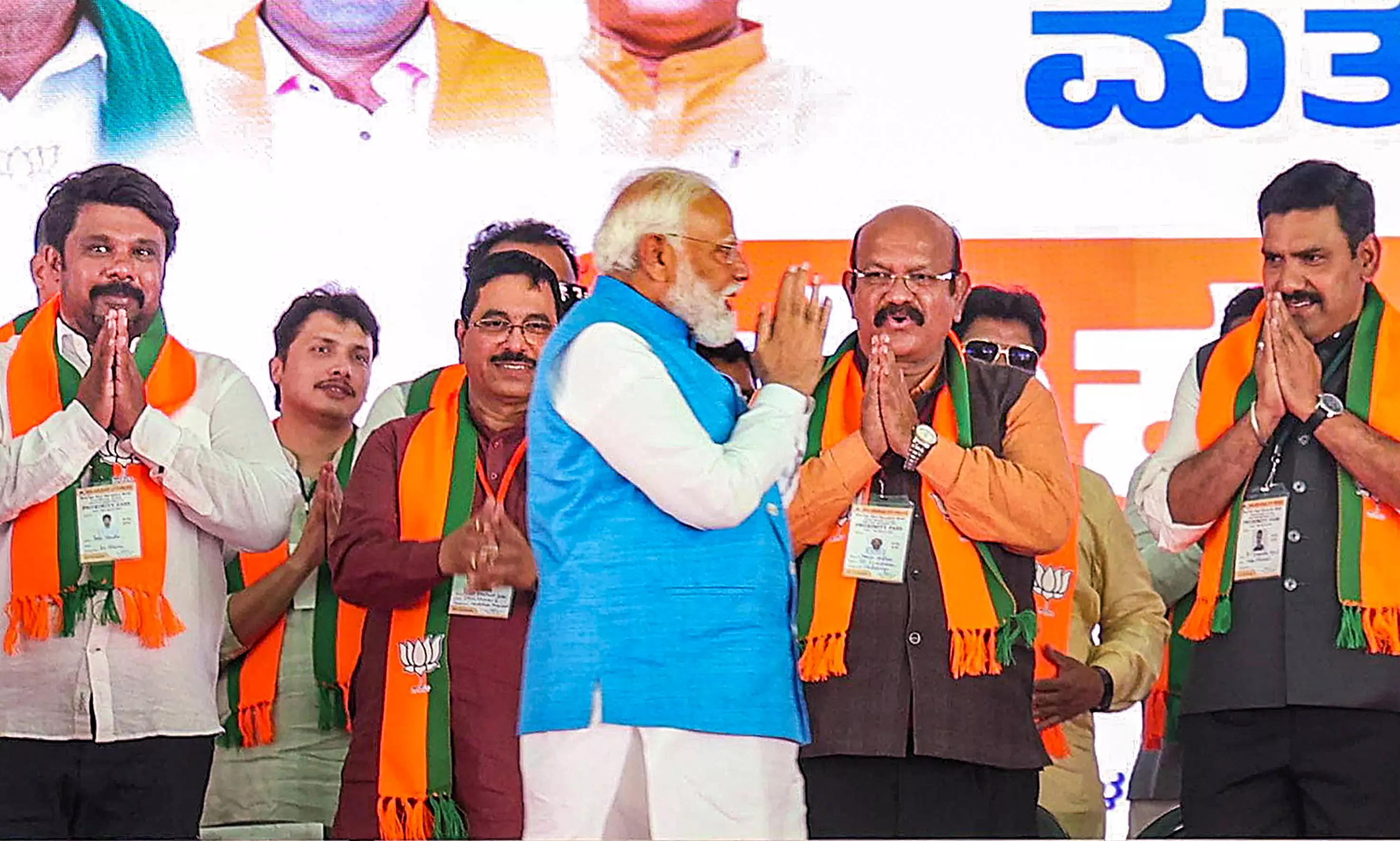
Modi asks ministers to draft roadmap for first 100 days, next 5 yrs of new govt in June
Modi told ministers to meet secretaries and other officials to find ways to enhance implementation of agenda for the first 100 days and subsequent five years.of the new government

A day after the Election Commission announced the dates for the upcoming Lok Sabha election, Prime Minister Narendra Modi asked ministers to develop a roadmap outlining the plans for the first 100 days and the subsequent five years of the new government that will be formed in June.
Cabinet meeting
Chairing a cabinet meeting on Sunday, March 17 morning in New Delhi, the PM also instructed them to meet secretaries and other officials of their respective ministries to discuss how the agenda for the first 100 days and the next five years can be better implemented.
The cabinet also initiated the process of notifying the dates of the seven-phase parliamentary elections by sending the Election Commission's recommendation to President Droupadi Murmu.
The first notification will be issued on March 20 for the first phase of polls on April 19 for 102 seats. The nomination process begins for a particular phase with the issuance of the notification.
Viksit Bharat
Prime Minister Narendra Modi and his Council of Ministers had on March 3 brainstormed over the vision document for 'Viksit Bharat: 2047' and over a detailed action plan for the next five years.
A 100-day agenda for immediate steps to be taken after a new government is formed in June was deliberated upon during the daylong meeting of the Council.
Sources had then said that the roadmap for 'Viksit Bharat' was a result of more than two years of intensive preparation and entailed a 'whole-of-government' approach involving all ministries and wide-ranging consultations with state governments, academia, industry bodies, civil society, scientific organisations and mobilisation of youths for inputs.
"More than 2,700 meetings, workshops and seminars were held at various levels. Suggestions of more than 20 lakh youths were received," an official had said.
(With agency inputs)

